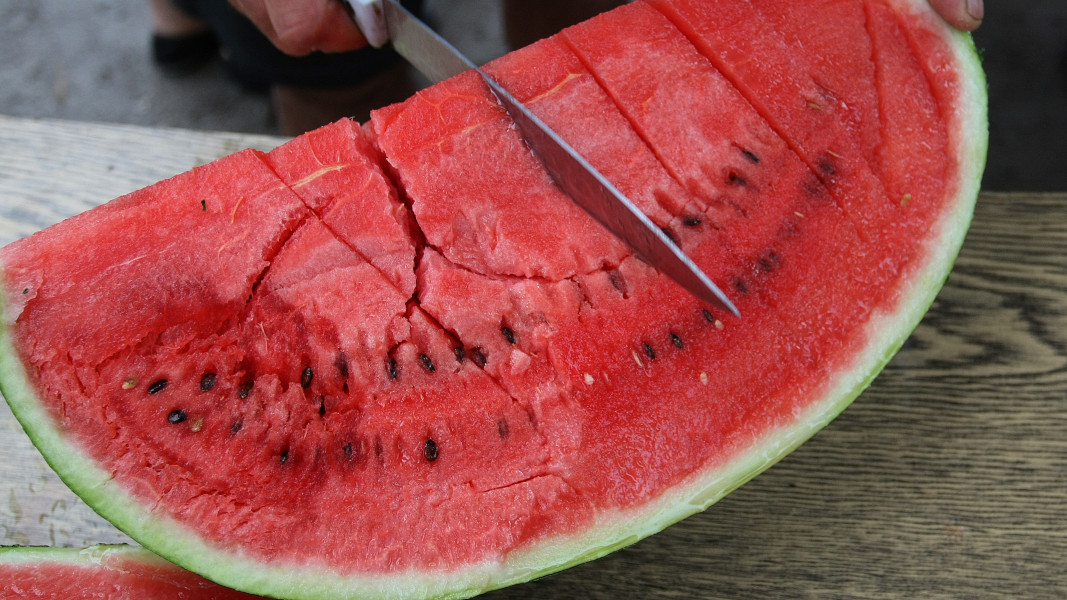Tons of watermelons are left in the field for lack of a market. Cheap Greek produce is permanently replacing domestic production, Bulgarian watermelon growers say. The state has no control over imports.
Costs have jumped by 30-40% at twice the farm gate price. This is the assessment of Yanko Yanev, one of the biggest producers in Lyubimets - the most famous watermelon growing region in Bulgaria. Once, sweet melons and watermelons were the trademark of the fertile lands of this southern Bulgarian town and the main livelihood for the locals. Today the situation is radically different. Melons are hardly grown at all and the watermelon business is getting tougher.
"This year, because I have a market, I'm at break-even. But the other growers have nowhere to sell and their watermelons are still in the field, unharvested," says Yanev. - There is no control over imports."

Yanev has 110 hectares of land planted with the Sorrento and Romanza varieties. He has been in the business for 10 years, but in his words, in 2021 the farm-gate price for watermelons was 15 euro cents per kilo, and this year it is 5-8 euro cents. "This year's harvest was weaker - the weather was not right," he said, calculating that the average cost per acre is 500 euro, which means that the purchase price per kilo should be at least 13 euro cents, and now the production is being sold at a loss.
Despite the difficult situation in the industry, Yanev manages to sell about 500 - 600 tons of his production on the domestic market, mainly on the stock exchanges in Plovdiv and Pazardzhik, with an average yield of 5 tons per acre. Harvesting this fruit is extremely labour intensive.
"It is very difficult to find watermelon pickers to work under the scorching sun but I manage for a wage of 50 leva daily (25 euro), says the farmer and highlights another serious failure of the state. He is one of the few registered farmers in Lyubimets. But there are many farmers who are in the grey economy and "do not pay taxes or social security". EU subsidies for fruit and vegetable production in the country are extremely low. Neighbouring Greece receives much more EU funds for the development of the sector, Yanev stresses.
"On the market in Sofia there are no watermelons from Lyubimets, no native production, everything is from Greece. It has been like that for years. Bulgarian watermelons are better, I guarantee you. And where are the retail chains, where is the state? It takes hard work to make a living with watermelons," says Yanko Yanev and shares concerns that watermelon production in the fertile region of Lyubimets will soon follow the fate of tomato growing:

"Soon there will be no watermelons in Lyubimets municipality. Just like tomatoes. Once every household had three greenhouses, and now there are no more tomatoes, the same will happen with watermelons - there will simply be no watermelons," says Yanev. He is considering halving the area of crops next year.
Author Tania Balabanova, BNR-Stara Zagora
English version: Elizabeth Radkova
Photo: BGNES41% of the member companies of the Bulgarian Industrial Association expect an economic decline in 2025. 21% believe there will be no change compared to 2024. 65% of the respondents anticipate a deterioration in their own business due to the..
The price of electricity for households could increase by nearly 9% starting next year, according to estimates by the Energy and Water Regulatory Commission. This means that with an average consumption of nearly 400 kilowatt-hours, the monthly bills..
The leadership of the Confederation of Independent Trade Unions in Bulgaria (CITUB) insists that a national subsistence wage be introduced in Bulgaria, with the minimum wage in the country reaching at least 80% of the subsistence wage by 2027. According..

+359 2 9336 661
